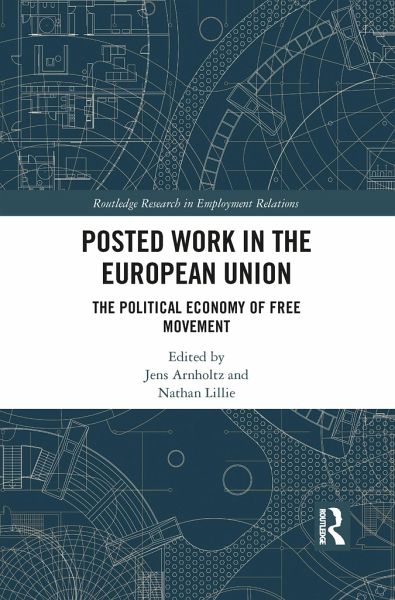
Posted Work in the European Union
The Political Economy of Free Movement
Herausgegeben: Arnholtz, Jens; Lillie, Nathan
Versandkostenfrei!
Versandfertig in 6-10 Tagen
45,99 €
inkl. MwSt.

PAYBACK Punkte
23 °P sammeln!
Focusing on posting of workers, where workers employed in one country are send to work in another country, this edited volume is at the nexus of industrial relations and European Union studies. The central aim is to understand how the regulatory regime of worker "posting" is driving institutional changes to national industrial relations systems. In the introduction, the editors develop a framework for understanding the relationship of supra-national EU regulation, transnational actors and national industrial relations systems, which we then apply in the empirical chapters. This unique volume b...
Focusing on posting of workers, where workers employed in one country are send to work in another country, this edited volume is at the nexus of industrial relations and European Union studies. The central aim is to understand how the regulatory regime of worker "posting" is driving institutional changes to national industrial relations systems. In the introduction, the editors develop a framework for understanding the relationship of supra-national EU regulation, transnational actors and national industrial relations systems, which we then apply in the empirical chapters. This unique volume brings together scholars from diverse academic fields, all of whom are experts on the topic of "worker posting." The book examines different aspects of the posting debate, including the interactions of actors such as labour inspectorates, trade unions, European legal/political regulators, manpower firms, transnational subcontractors and posted workers.
The main objective of this book is to explore the dynamics of institutional change, by showing how trans- and supra-national dynamics affect European industrial relations systems. This volume will represent the "state of the art" in research on worker posting. It will also contribute to debates on European integration, social dumping, labour market dualization and precariousness and will be of value to those with an interest employment relations, law and regulation.
The main objective of this book is to explore the dynamics of institutional change, by showing how trans- and supra-national dynamics affect European industrial relations systems. This volume will represent the "state of the art" in research on worker posting. It will also contribute to debates on European integration, social dumping, labour market dualization and precariousness and will be of value to those with an interest employment relations, law and regulation.












